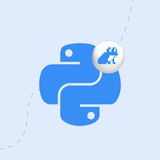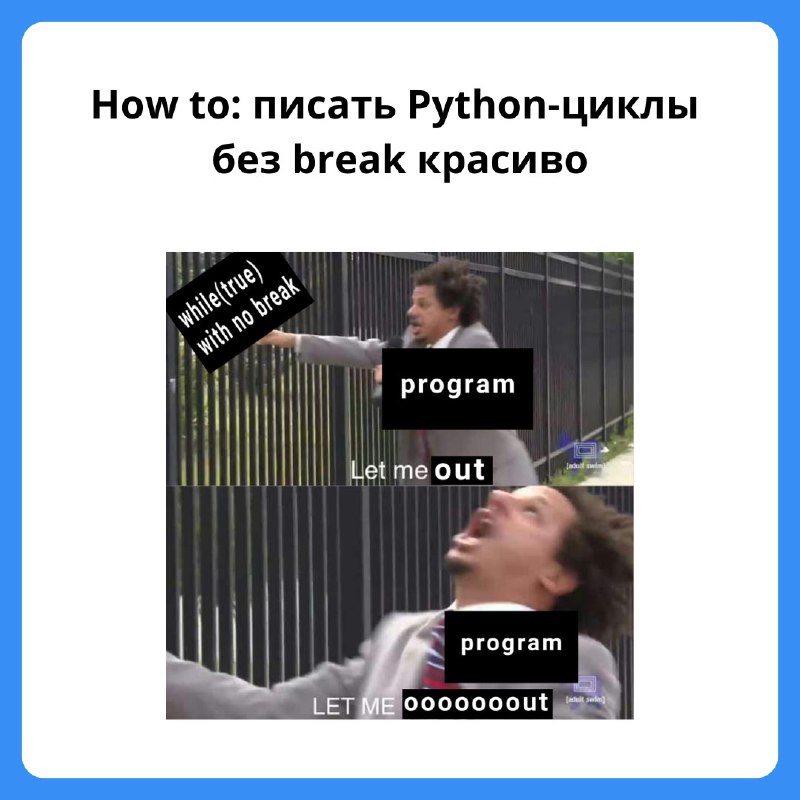tg-me.com/pyproglib/6602
Last Update:
В Python break в циклах for прерывает итерацию, но часто есть более читаемые и лаконичные способы. Разберём типичные случаи и их альтернативы.
Классика с break:
color_options = ["blue", "green", "purple"]
is_purple_an_option = False
for color in color_options:
if color == "purple":
is_purple_an_option = True
break
Альтернатива — оператор
in:is_purple_an_option = "purple" in color_options
in работает со всеми итерируемыми объектами, а для set и dict ещё и быстрее, чем цикл.Пример с
break:points_per_user = [3, 12, 28, 105]
anyone_has_100 = False
for points in points_per_user:
if points > 100:
anyone_has_100 = True
break
Альтернатива —
any:anyone_has_100 = any(points > 100 for points in points_per_user)
any (или all для "все элементы") делает код выразительнее.С
break:words = ["Look", "at", "these", "excellent", "words"]
first_long_word = None
for word in words:
if len(word) > 4:
first_long_word = word
break
Альтернатива —
next с генератором:long_words = (word for word in words if len(word) > 4)
first_long_word = next(long_words, None)
next берёт первый элемент из генератора, а None — значение по умолчанию, если ничего не найдено.С
break:items = ["chair", "desk", "", "lamp"]
before_blank = []
for item in items:
if not item:
break
before_blank.append(item)
Альтернатива —
itertools.takewhile:from itertools import takewhile
before_blank = list(takewhile(bool, items))
takewhile собирает элементы, пока условие истинно, и возвращает итератор.break полезен, но часто его можно заменить:—
in — для проверки наличия—
any/all — для условий—
next — для поиска первого значения—
takewhile — для сбора до условияbreak?Библиотека питониста #буст

